Health
U.S. Approves the Sale of Lab-Grown Chicken

The Agriculture Department approved the production and sale of laboratory-grown meat for the first time on Wednesday, clearing the way for two California companies to sell chicken produced from animal cells.
It will likely be years before shoppers can buy lab-produced meat in grocery stores. But the government’s decision will eventually allow the sale of lab-produced meat across state lines after passing federal inspections.
The decision is a milestone for companies making cell-grown meat, along with consumers looking for alternatives to chickens bred in a factory farm and slaughtered.
Supporters of alternative proteins along with the companies that sought federal approval — Upside Foods and Good Meat — celebrated the news as pivotal for the meat industry and the broader food system at a moment of growing concern about the environmental impact of meat production and its treatment of animals.
“This approval will fundamentally change how meat makes it to our table,” Dr. Uma Valeti, the chief executive and founder of Upside Foods, said in a statement. “It’s a giant step forward towards a more sustainable future — one that preserves choice and life.”
The decision will make the United States the second country in the world, after Singapore, to authorize the production and sale of lab-grown meat. Bruce Friedrich, the president of the Good Food Institute, a nonprofit focused on cell- and plant-based meat, said U.S. approval was a critical step for the industry, adding that “the world does look to the United States’ food safety approval system, and now lots of governments will follow.”
Supporters of cultivated meat say the product has better outcomes for the environment, food safety and animal welfare. But skeptics are wary of scientific and safety risks and say the purported environmental benefits are unproven. Difficulties remain over how to increase the product for mass consumption.
About 100 companies worldwide, including dozens in the United States, focus on the production of cultivated meat, according to Mr. Friedrich. The industry was valued at about $247 million in 2022, according to the market research firm Grand View Research, and could grow to $25 billion by 2030, the consulting firm McKinsey & Company projected.
Lab-grown meat begins with cells taken from an animal. Those cells are then fed water and salt and nutrients like amino acids, vitamins and minerals. The cells then multiply in large tanks called cultivators or bioreactors. When harvested, the product is essentially minced meat, which is then formed into patties, sausage or fillets. The meat contains no bones, feathers, beaks or hooves and does not need to be slaughtered.
Upside Foods and Good Meat declined to elaborate on their current production capacity, but Dr. Valeti said last year that the company will eventually grow to “tens of millions of pounds of product.”
That’s chicken feed compared with the more than 300 million tons of meat consumed around the world — a number that is only expected to grow.
Both companies will begin selling chicken to American consumers through partner restaurants: Upside Foods at Bar Crenn in San Francisco, and Good Meat at an undisclosed location operated by the chef José Andrés in Washington. The model allows both consumer education and feedback, spokesmen for the companies said.
After the initial trial run, both companies also anticipate scaling up production and expanding to other types of meat. (Beef, with its higher fat content and more complex flavor, is harder to replicate.)
Still, questions linger over the regulatory framework around cultivated meat and consumer attitudes toward the products.
Many cattlemen and agriculture groups have cried foul over calling the lab-grown variety “meat” and have been lobbying legislators to safeguard the word. The Food Safety and Inspection Service, the Agriculture Department agency tasked with inspecting conditions at processing facilities, is still drafting regulations on how food products derived from animal cells should be labeled. For now, the two California companies will call their products “cell cultivated chicken,” a label that the agency approved last week.
Semantic and consumer opinion battles aside, Mr. Friedrich warned that the cultivated meat products, when they eventually hit grocery shelves, will be expensive compared with conventional sausages and patties — similar to how renewable energy was initially costlier than oil and gas.
Nonetheless, he is confident that “cultivated meat will sell itself.”

Health
7 important health stories this week you simply can't miss
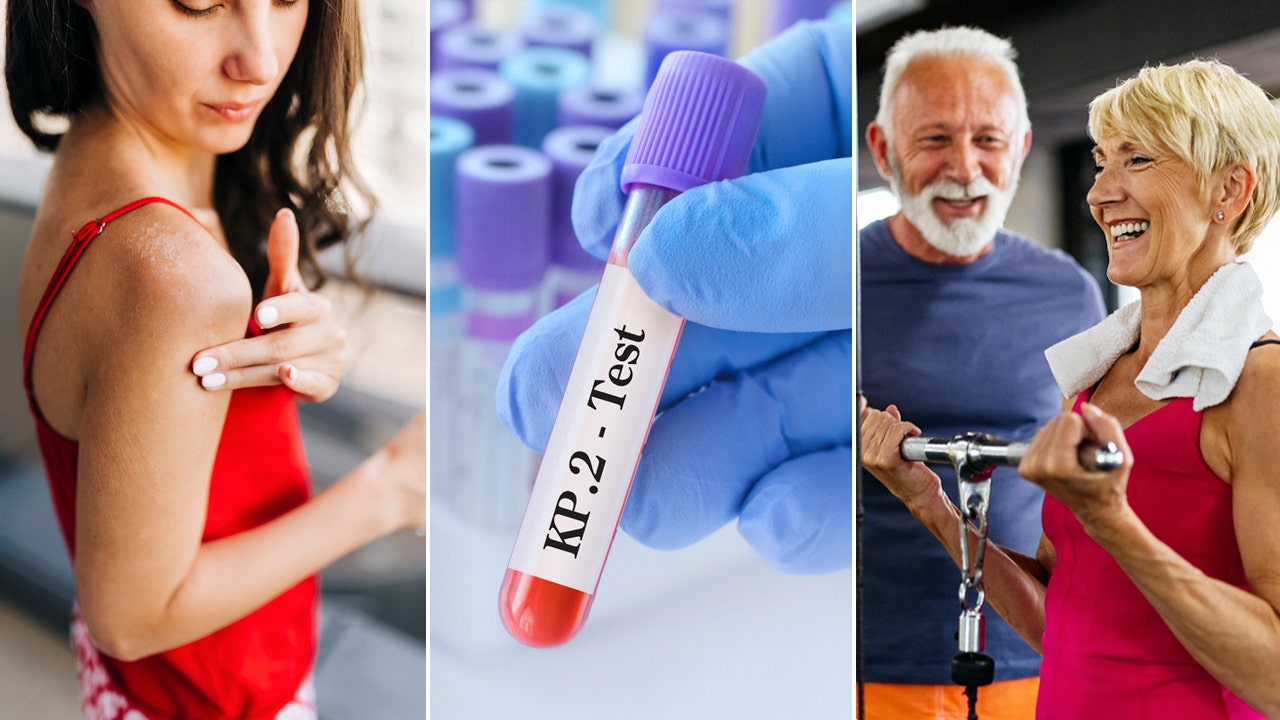
Every day of the week, Fox News Digital publishes a range of health and wellness pieces to keep you up-to-date on medical research, new medications, mental health trends, success stories and more.
In case you missed them, here are a few of the biggest health stories from the past week.
As always, you can see a full list of recent health pieces at http://www.foxnews/health.
CLICK HERE TO SIGN UP FOR OUR HEALTH NEWSLETTER
1. FDA tells COVID vaccine makers to update their fall shots
The U.S. Food and Drug Administration recommended that COVID vaccine manufacturers update their formulas for fall doses, in an attempt to target the KP.2 strain of the JN.1 variant.
Dr. Marc Siegel shared insights on the risks as this variant grows more prominent. Click here to get the story.
“It makes sense to target the KP.2 strain because it is becoming the predominant strain — it is surging in California and will spread across the country,” Siegel told Fox News Digital. (iStock)
2. Expert offers 7 tips to soothe sunburned skin
If not treated properly, sunburn can lead to severe skin damage and increase the risk of skin cancer, experts warn.
Angela Rosoff, a San Francisco-based wellness and beauty expert, shared some proven remedies to treat sun-damaged skin. Click here to get the story.

More than one out of every three adults experienced a sunburn last year, according to a survey by the American Academy of Dermatology. (iStock)
3. Tiger mosquitoes blamed for spread of dengue fever
As dengue fever continues to spread throughout Europe, experts are naming an invasive mosquito species as the culprit.
CANCER NEARLY TOOK HIS LEG, BUT NEW JERSEY FATHER OF 6 WALKS AGAIN: ‘I SHOULDN’T BE HERE’
Infectious diseases experts weighed in on the level of risk and share prevention tips. Click here to get the story.
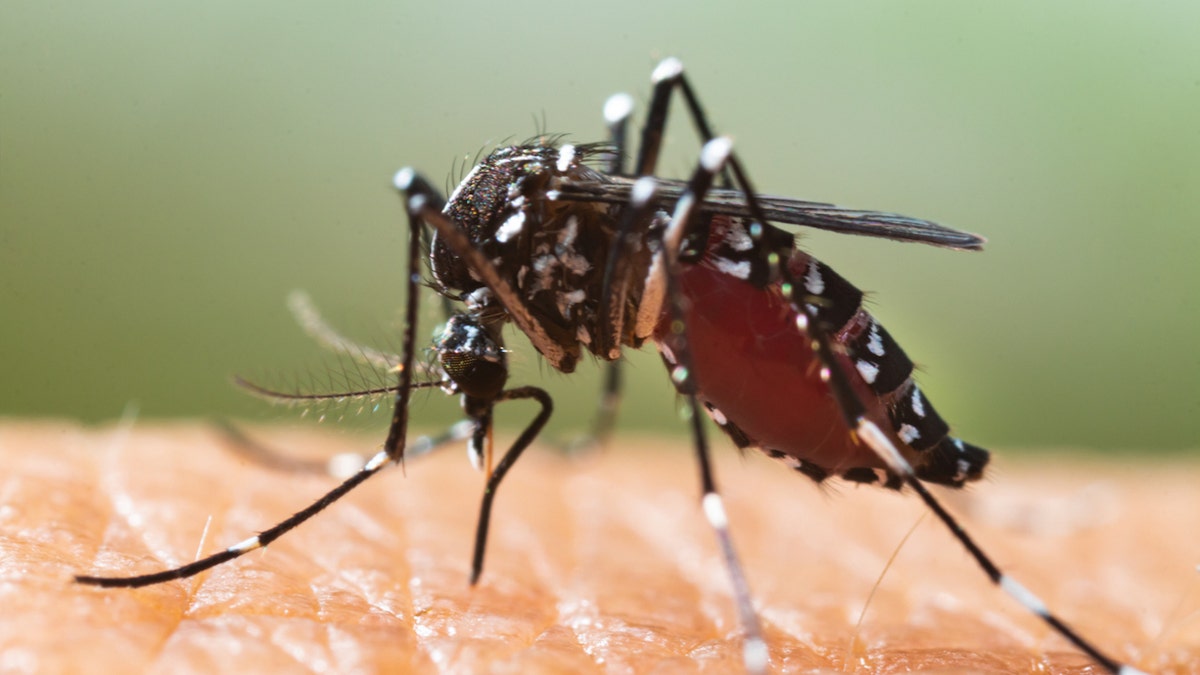
Tiger mosquitoes — the species Aedes albopictus — have spread into 13 EU countries, according to an alert from the European Centre for Disease Prevention and Control. (iStock)
4. Certain exercises could reverse Alzheimer’s, expert says
In her new book, “Reversing Alzheimer’s,” Dr. Heather Sandison, a renowned expert in dementia care, offered specific recommendations for the types of exercise that can benefit patients living with the disease.
“Exercise benefits several of the root causes of neurological disease,” she wrote. Click here to get the story.
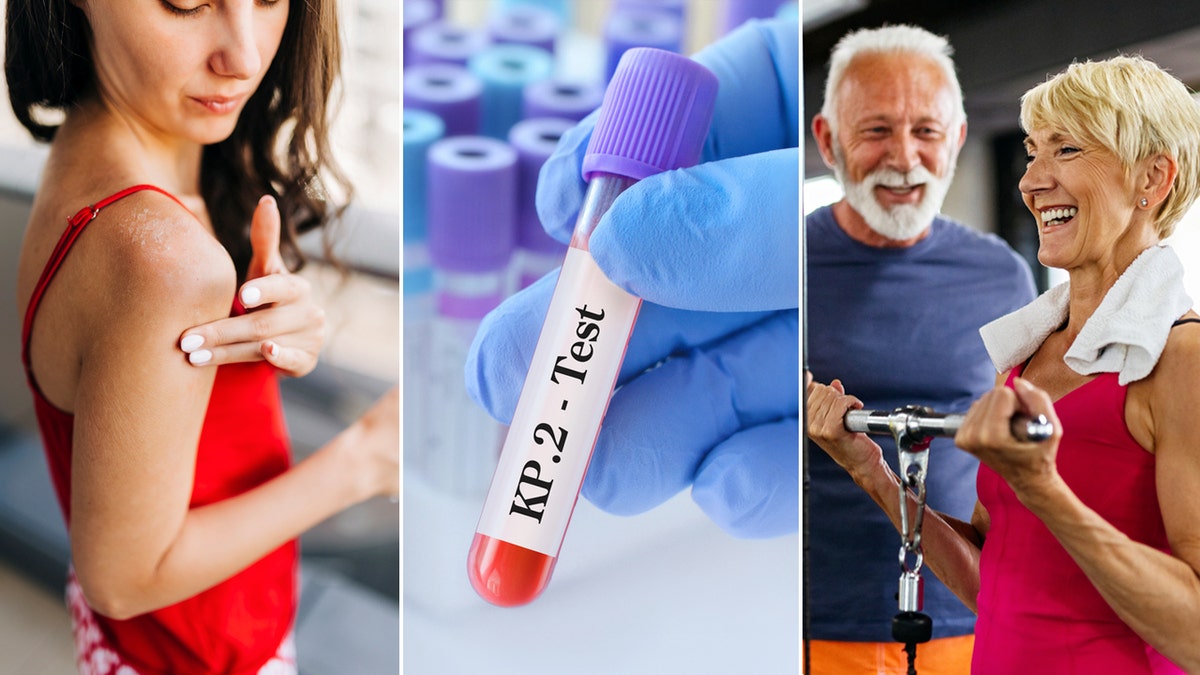
Sunburn remedies, new COVID vaccines, anti-Alzheimer’s exercises and more important stories are covered here. (iStock)
5. Experts bust sunscreen myths
Some claims on social media about sun safety have led to a major misconception that sunscreen could cause skin cancer.
Dermatologists debunk these potentially dangerous myths. Click here to get the story.

Thirty-two percent of Americans believe that a tan makes people look better and healthier, according to the Orlando Health Cancer Institute study. (iStock)
6. New Alzheimer’s drug gets thumbs-up from FDA advisory committee
Donanemab, designed to treat mild cognitive impairment and other symptoms of early Alzheimer’s disease, was endorsed by a U.S. Food and Drug Administration advisory panel.
Here’s what that could mean for patients. Click here to get the story.

Eli Lilly officials presented clinical trial results showing that the drug, donanemab, slowed cognitive and functional decline for people with mild cognitive impairment due to early stages of Alzheimer’s. (iStock)
7. FDA panel rejects MDMA-assisted therapies for PTSD
Many veterans’ hopes were dashed when an FDA advisory committee voted against the overall benefits of MDMA when used to treat PTSD.
Advocates and doctors discussed what this means for the future of psychedelic treatments. Click here to get the story.

“When I heard the verdict, all I could think about was the hopes of those veterans being dashed … and not having a solution for them,” one advocate said. (iStock)
Health
Better Than Ozempic? Doctors Say These Medications Are Better for Weight Loss Than the Popular Semaglutide

Sign Up
Create a free account to access exclusive content, play games, solve puzzles, test your pop-culture knowledge and receive special offers.
Already have an account? Login
Forgot your password?
Get back to the Sign In
Use left and right arrow keys to navigate between menu items.
Use escape to exit the menu.
Health
Honeybees can detect lung cancer, researchers say
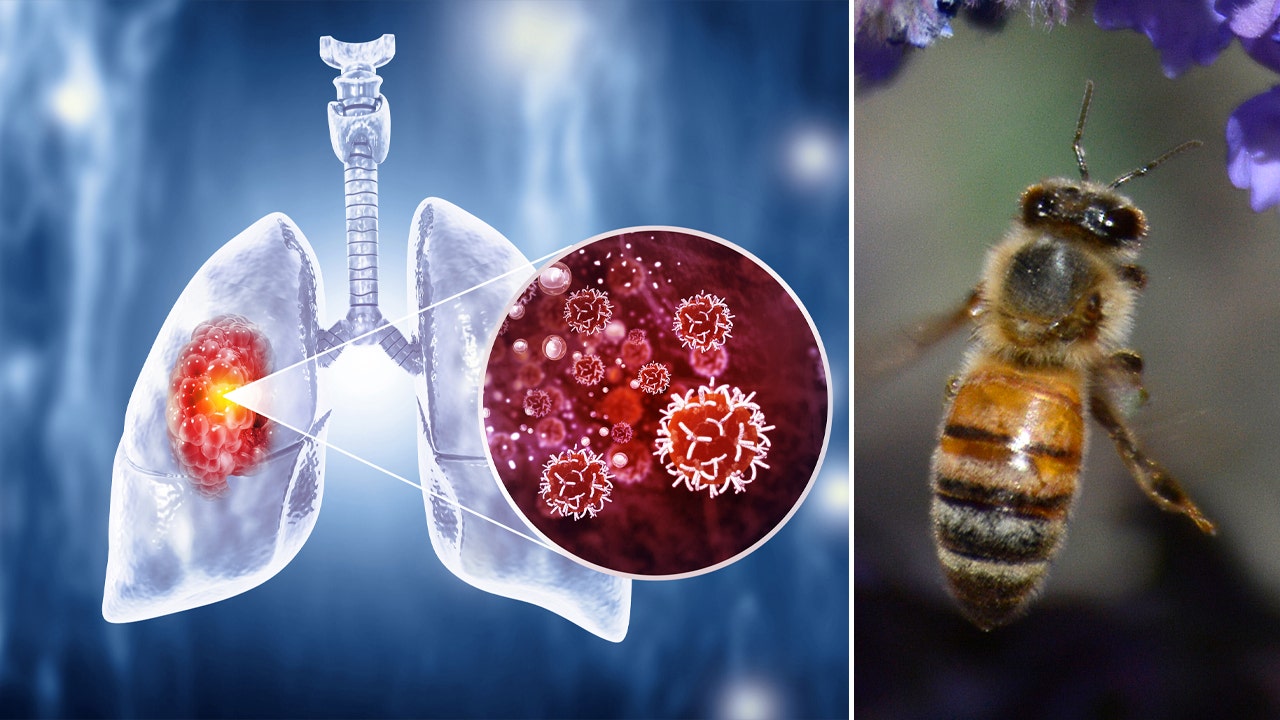
What happens when you pair honeybees and halitosis? Potentially a life-saving new method to screen for cancer, according to one study.
Researchers at Michigan State University have learned that honeybees can detect chemicals associated with lung cancer in human breath. The insects were able to sniff out human lung cancer biomarkers with a remarkable 82% success rate, according to a study published in the journal Biosensors and Bioelectronics.
“These results indicate that the honeybee olfactory system can be used as a sensitive biological gas sensor to detect human lung cancer,” the study authors wrote.
“Insects have an amazing sense of smell the same way dogs do,” said MSU professor Debajit Saha, according to an MSU news release.
YOUNG VAPER WHO REQUIRED DOUBLE LUNG TRANSPLANT SHARES WARNINGS AS E-CIGARETTE SALES RISE
A honeybee drinking nectar from a flower in Markham, Ontario, Canada. (Creative Touch Imaging Ltd./NurPhoto via Getty Images)
Saha, an assistant professor in the College of Engineering and MSU’s Institute for Quantitative Health Science and Engineering, sought to determine whether honeybees could distinguish chemicals in a healthy person’s breath from that of someone sick with lung cancer.
His team developed a “recipe” for a synthetic breath mixture that contained six compounds present in the breath of someone with cancer and a synthetic “healthy” breath mixture.
“It took a steady hand to create the recipe,” said Elyssa Cox, Saha’s former lab manager. “We tested the synthetic lung cancer versus healthy human breath mixtures on approximately 20 bees.”
The researchers placed each live bee in a custom 3D-printed harness and attached a tiny electrode to its brain to measure activity.
SOME BREAST CANCER PATIENTS COULD BE AT RISK OF ANOTHER TYPE OF CANCER, STUDY REVEALS

Lung cancer is the leading cause of cancer death worldwide. An estimated 235,580 people will be diagnosed with lung cancer in 2024 in the U.S., according to the Lung Cancer Research Foundation. (Mohammed Haneefa Nizamudeen/iStock)
“We pass those odors on to the antenna of the honeybees and recorded the neural signals from their brain,” said Saha. “We see a change in the honeybee’s neural firing response.”
The researchers found that the bees were able to detect the cancer-indicating compounds even in small amounts.
“The honeybees detected very small concentrations; it was a very strong result,” said Saha. “Bees can differentiate between minute changes in the chemical concentrations of the breath mixture, which is in the parts per 1 billion range.”
The bees also could tell the difference between the synthetic lung cancer breath and healthy breath.
UK TO INTRODUCE BILL TO PHASE OUT LEGAL SALE OF TOBACCO
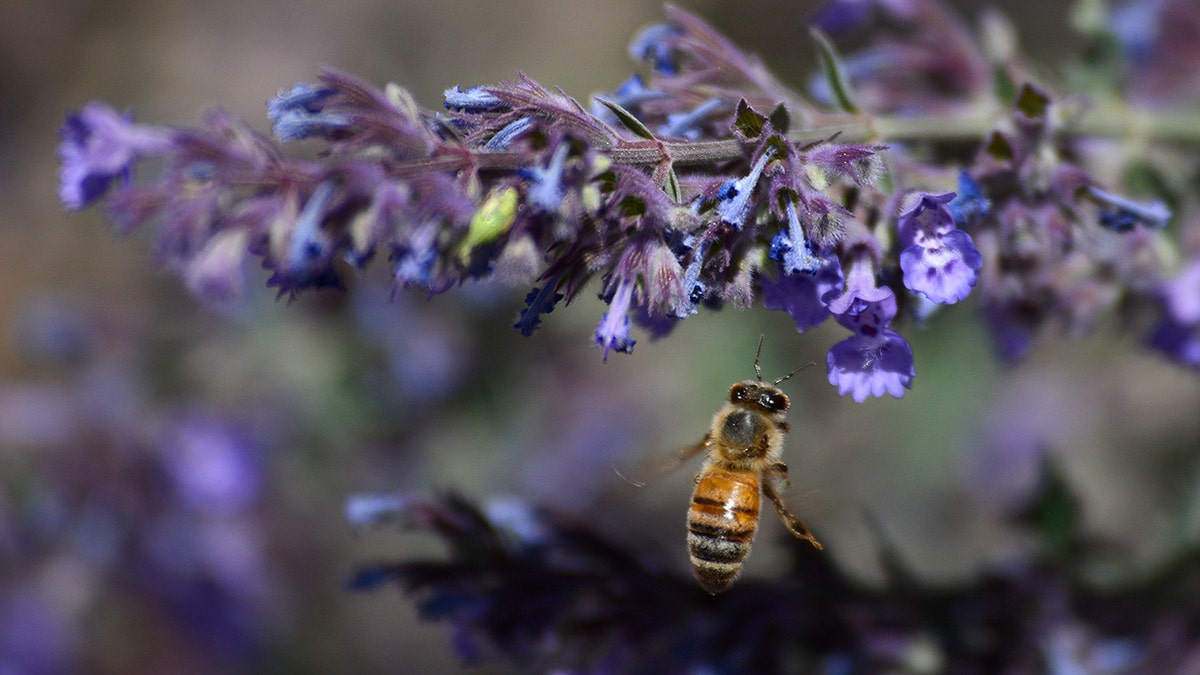
A honey bee visits a blooming catmint plant growing in Santa Fe, New Mexico. (Robert Alexander/Getty Images)
Scientists hope this research will lead to the development of a sensor based on a honeybee brain that can be used to test human breath for the presence of lung cancer.
“What’s amazing is the honeybees’ ability to not only detect cancer cells, but also distinguish between cell lines of various types of lung cancer,” said Autumn McLane-Svoboda, a graduate student on Saha’s team. “The future implications for this are huge, as our sensor could allow for patients to receive specific cancer diagnoses quickly, which is imperative for correct treatment routes.”
Lung cancer is the leading cause of cancer death worldwide. An estimated 235,580 people will be diagnosed with lung cancer in 2024 in the U.S., according to the Lung Cancer Research Foundation.
Smoking is the leading risk factor for lung cancer and is responsible for 80% of lung cancer deaths.
Early detection of high-risk lung cancer can reduce the chance of death by up to 20%.
-

 News1 week ago
News1 week agoIsrael used a U.S.-made bomb in a deadly U.N. school strike in Gaza
-

 World1 week ago
World1 week agoFrance to provide Ukraine with its Mirage combat aircraft
-

 World1 week ago
World1 week agoRussia-Ukraine war: List of key events, day 833
-

 News1 week ago
News1 week agoNonprofit CFO Accused of 'Simply Astonishing' Fraud
-

 Politics1 week ago
Politics1 week agoGeorge Clooney called White House to complain about Biden’s criticism of ICC and defend wife’s work: report
-

 Politics1 week ago
Politics1 week agoNewson, Dem leaders try to negotiate Prop 47 reform off California ballots, as GOP wants to let voters decide
-

 World1 week ago
World1 week ago‘Bloody policies’: Bodies of 11 refugees and migrants recovered off Libya
-

 Politics1 week ago
Politics1 week agoEmbattled Biden border order loaded with loopholes 'to drive a truck through': critics

/cdn.vox-cdn.com/uploads/chorus_asset/file/25491634/installer_42_2.png)











